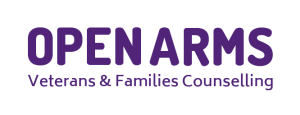Frequently Asked Questions
What does Open Arms offer to veterans and families?
Who is eligible for Open Arms’ services?
Why am I being referred to another service?
Can I see a psychiatrist?
Can I keep seeing my Open Arms counsellor after I have been referred for specialist care?
Does Open Arms provide court ordered counselling?
Can I get a report to use for my DVA claim or court?
Why is an intake assessment necessary?
Can I get an assessment for ADHD (attention deficit hyperactivity disorder) or ASD (autism spectrum disorder)?
How many sessions am I eligible for?
Can I see the Open Arms counsellor or Peer worker I’ve seen before?
Can I get help with transport?
What if I don’t want to work on a goal and just want to talk?
What does it cost to use Open Arms?
What happens when Open Arms is not a suitable service for an eligible child?
What gets reported to the Department of Defence (Defence)?
What is the difference between Open Arms and DVA?
Why does Open Arms employ a mix of mental health professions?
Download a visual explainer of Open Arms' Model of Care.
What does Open Arms offer to veterans and families?
Open Arms is a trauma informed, mental health and wellbeing service for current and former serving members of the Australian Defence Forces and their families. We are the only mental health service in Australia dedicated to veterans and their families and we have almost 45 years of experience in providing support to our client group. We provide primary level non-medical treatment and support for clients dealing with issues such as depression, anxiety, PTSD, stress and family and personal issues. We do this through one-on-one counselling, relationship counselling, Peer support, care coordination, group and online programs provided across Australia.
Who is eligible for Open Arms’ services?
Open Arms provides services to anyone who has served at least one day of continuous fulltime service (CFTS) in the Australian Defence Force (ADF) and their families. You are eligible if you are a current or former ADF member, or if you are the partner or child (of any age) of a current or former ADF member from the Vietnam War onward.
Reservists with CFTS and those without but who have rendered border protection or disaster relief service or been involved in or witnessed a serious training accident, and their immediate families are also eligible.
If you are unsure of your eligibility, you can call Open Arms on 1800 011 046 to check.
Why am I being referred to another service?
Open Arms is not equipped or staffed to provide specialised or acute mental health services. For example:
- Individuals experiencing immediate and severe symptoms of mental illness may be best served in a medical setting such as a hospital or residential program. Open Arms can support individuals with serious mental health conditions if they are receiving appropriate treatment and their symptoms are stable.
- Open Arms is usually not be able to work one on one with children under 5 years, as this is a specialised field outside the scope of practice for most of our clinicians and Peers. If there is not a suitably qualified clinician available, Open Arms can assist parents of very young children to access the most appropriate treatment, including facilitating referrals to other services.
- Open Arms is not a family and domestic violence service and cannot provide specialised family and domestic violence support. People in crisis due to family violence, including families at imminent risk of harm, will be referred to specialised family and domestic violence services.
Can I see a psychiatrist?
Open Arms does not provide psychiatric care or refer directly to psychiatrists. Your GP can refer you to a psychiatrist. Open Arms can recommend and fund a psychiatric assessment for partners, former partners (within 5 years or while coparenting a minor) and children of any age of Vietnam veterans, where this assessment is used to assist Open Arms in providing care. Your GP needs to make the referral for this. Open Arms’ clinicians can then work with your treating psychiatrist and assist you to navigate the mental health system.
Can I keep seeing my Open Arms counsellor after I have been referred for specialist care?
Yes. Open Arms supports integrated, multidisciplinary care and you can receive services from Open Arms and a specialist service if it is clinically indicated and appropriate. With your consent, Open Arms will work with your specialist care provider to ensure an integrated approach. This will most often occur through a care coordination service in conjunction with the GP.
The care coordinator may be a different person from your counsellor as not all counsellors provide this service. A care coordinator may not provide therapy or counselling but can provide you with an overview of multiple services, assisting with coordination and connection between services, depending on what you need.
Although Open Arms can continue to be involved while you are actively engaged with other care providers, it is good clinical practice to avoid multiple providers of the same service (for example, two counsellors seeing you for the same issues). However, there is no barrier to the provision of complementary services, so long as overall your care is being approached in a coordinated way. Please note however Open Arms is not able to fund complementary health services.
Does Open Arms provide court ordered counselling?
Open Arms does not provide court ordered counselling, including Family Court orders and counselling as a parole condition.
Can I get a report to use for my DVA claim or court?
Open Arms does not provide medical or legal reports, support letters or reports for DVA claims or court. Open Arms can provide you with a Statement of Attendance if you make a Release of Information request by calling 1800 011 046. This is a letter on Open Arms letterhead indicating the number of sessions attended and the general nature of those sessions.
Why is an intake assessment necessary?
When you contact Open Arms to access counselling or another service, we need to understand your concerns and whether you are worried about your own or another person’s safety. This process, often referred to as ‘intake’, is not just about asking questions – it is the first step to support you.
During your intake, we will ask questions about your current circumstances and needs. Information gathered at intake allows us to determine whether Open Arms is the most suitable service to support you. This information also assists us to connect you with the most appropriate program or counsellor. If Open Arms cannot provide a suitable service, we will aim to support you to connect with the service you need.
Even if you have received services from Open Arms previously, we will still need to check you current needs to ensure you receive the right service at the right time.
Can I get an assessment for ADHD (attention deficit hyperactivity disorder) or ASD (autism spectrum disorder)?
Open Arms is not able to provide ADHD or ASD assessments. Where appropriate, we can provide counselling for someone with an ADHD or ASD diagnosis, but we do not provide ADHD or ASD specific supports. We can however link you in with the National Disability Insurance Agency if required as part of care coordination.
How many sessions am I eligible for?
When you start counselling, care coordination or Peer support at Open Arms, your counsellor, care coordinator or Peer worker will discuss your situation with you and create a plan with agreed goals to meet your needs. The support outlined by this plan is provided in an Episode of Care that begins at the point you are allocated to a counsellor, care coordinator or Peer worker and ends when that service is closed. The amount of counselling, care coordination or Peer support will relate to what is helpful to meet your goals. There is no limit to the number of sessions in an Episode of Care. However, Open Arms’ Episodes of Care are expected to be goal focused and time-limited, in accordance with the Model of Care.
As an Open Arms client, your progress will be reviewed by your counsellor, care coordinator or Peer worker each session, and by an Open Arms senior clinician after ten sessions. If more sessions are required to reach your agreed goals, further sessions can be requested by your Open Arms counsellor, care coordinator or Peer worker. In some circumstances a third set of 10 sessions may be approved. Any further extension beyond this would only be approved in exceptional circumstances, and with strong clinical reasons.
Can I see the Open Arms counsellor or Peer worker I’ve seen before?
If you have requested to see your previous counsellor or Peer worker again, the continuity of care principle will apply, unless there is a substantial reason for this to not be relevant. While we cannot guarantee this, in the interests of continuity of care we do our best to accommodate a preference to see the same counsellor or Peer worker. If we cannot facilitate this in a timely manner, we may recommend that you choose to see a different counsellor or Peer worker.
Can I get help with transport?
If you are a veteran client with a DVA entitlement to reimbursement of the cost of transport for treatment related journeys, you may be able to claim for travel to and from Open Arms’ services. This is handled by DVA, and any queries should be directed to DVA – phone 1800 VETERAN (1800 838 372) or email GeneralEnquiries@dva.gov.au.
Why do I need goals in Open Arms’ programs?
Identifying goals helps us ensure that we are supporting you in meeting your wellbeing needs. Goal focused therapy provides practical tools and coping strategies that you can apply in daily life. By implementing these skills between treatment episodes, it promotes the opportunity to reinforce what you have learned, helping build independence and self-reliance. Fostering independence and self-reliance is essential for long-term positive wellbeing.
What if I don’t want to work on a goal and just want to talk?
Some clients have long standing relationships with Open Arms which may not always be goal-oriented in their focus. We understand that having a safe space to talk can help to feel better when we are struggling. Providing you with space to talk is still goal oriented.
Open Arms’ counselling, Peer support, group programs and care coordination are goal focused services, with Episodes of Care which are designed to achieve an outcome.
In setting up an Episode of Care you will be guided through a Care Plan based on goals that are relevant to you. Goals can sometimes be difficult to identify but it is important for both you and your counsellor or Peer worker to approach the Episode of Care with a clear focus. This guides the direction of sessions and provides a good point of reference to observe progress and improvement.
What does it cost to use Open Arms?
Open Arms’ services are provided at no cost to current serving members of the ADF, veterans and their families who meet the eligibility criteria.
What happens when Open Arms is not a suitable service for an eligible child?
Open Arms is primarily a service for adults that supports children as part of a family. Children of any age can be included in family counselling sessions with their parents as long as it is appropriate for them to participate.
Open Arms is not a specialist child service and is not a suitable service to provide individual counselling or treatment to children under five years of age. Open Arms is also not a suitable service to provide individual counselling or treatment to children over five years of age where they do not have the competence to participate in the proposed counselling or treatment.
Open Arms requires the signed consent of a parent, or legal guardian authorised to consent on their child’s behalf, with the possible exception of a minor 16 years or older.
In instances where Open Arms is not an appropriate provider for a young child, Open Arms will assist you to identify a more suitable, specialised provider and where appropriate, your GP may be able to refer you to a suitable service. Open Arms does not fund these referrals.
What gets reported to the Department of Defence (Defence)?
It is good practice for health services that support you to liaise with other parts of your care team about your progress. If you refer yourself to Open Arms, there is no routine reporting to Defence, but you can request, and provide consent, for Open Arms to liaise with your Garrison Health facility to support your care. If your safety or the safety of others is at serious risk, we may inform your Garrison Health facility if doing so supports your safety and treatment.
If you have agreed to be referred to Open Arms by your Garrison Health facility, we will seek your consent to provide them with summary reports of your counselling. If you do not consent, we can’t provide a service under that referral. We will inform your Garrison Health facility of this and offer you the opportunity to self-refer.
What is the difference between Open Arms and DVA?
Open Arms is DVA’s veterans and families counselling service. DVA provides a range of veteran services (go to this link for an Overview of DVA benefits and services), including mental health services. Access to most DVA veteran services requires accepted entitlement to a DVA Veterans White or Gold Card.
Through Open Arms, DVA provides mental health, counselling and wellbeing support services to veterans and families without requiring Open Arms’ clients to have a Veterans Card. It provides non-medical mental health services including counselling, group sessions, Peer support and clinical care coordination.
Why does Open Arms employ a mix of mental health professions?
Open Arms employs a range of mental health professionals including mental health accredited social workers, general social workers, clinical psychologists, general psychologists, mental health occupational therapists, nurses, lived experience professionals (Peer workers) and accredited counsellors. We ensure that all mental health professionals meet the required qualifications and are registered with the relevant governing body or association.
Clients come to Open Arms with a wide range of mental health, counselling and wellbeing concerns. Examples include recovery from trauma, depression, anxiety, anger, self-harm, grief and loss, managing chronic pain, sleep disorders, transition from the military, other adjustments to changed circumstances, health and wellness, relationship issues, and family issues. This list is indicative rather than exhaustive.
Mental health professionals from the different disciplines have diverse training, backgrounds, experience and skills, allowing Open Arms to match you with a mental health professional whose skills and experience can best respond to your needs and goals.
Open Arms provides treatment support through evidence-based and informed therapies which can be delivered by a range of mental health professionals and seeks to ensure a diverse and multidisciplinary workforce to meet the needs of our community.





